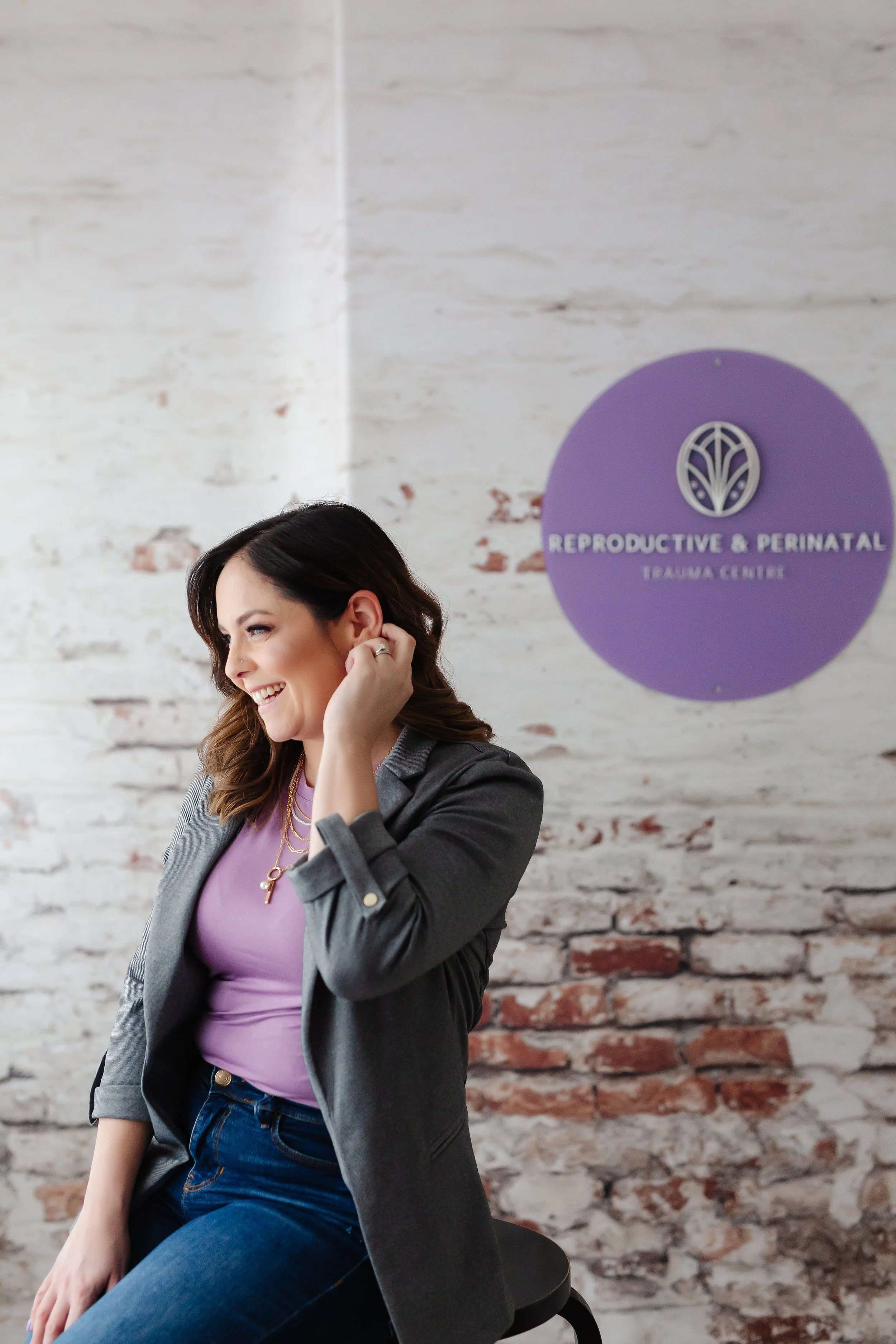Healing after Birth Trauma: How RPTC got started!
Below we share how this all came to be, and what inspired the concept of amplifying experiences, why we started this practice, and the goals we strive to achieve through specialized support and therapuetic techniques.
“We don’t heal in isolation, but in community.”
-S. Kelley. Harrell-
OUR CORE VALUES
-

Safety
Safety is critical before a person can openly share and work through the challenges that brought them to RPTC. The environment and how we engage with you will create a sense of safety. Safety is not just about the physical space that a centre holds; it is about the emotional well-being of the person in front of us. Knowing how we show up, the language that we use, and the body language that is presented all impact that safety.
-

Trauma- Informed Care
Genuine trauma-informed care is the very foundation of our work at RPTC. This means we consider our language, do not involve our opinions or biases in our work, and understand issues of race, privilege, and oppression. We know how the brain and nervous system are impacted by trauma, how people respond to what occurs, and how providers treat them is often based on their past experiences. Consent is an ongoing process, and the providers at RPTC want to ensure they are clear about what will take place and how. We want you to know that we value and respect personal boundaries and that “no” is a complete sentence in our world.
-

Compassion
Our providers will warmly meet you where you are at while actively listening and engaging with your concerns and knowledge. We will never understand your entire experience, but we will work hard to appreciate how layered it is and offer genuine empathy. Compassion is authentic, it comes in various forms and is something that the client should truly be able to feel in each session.
-

Client-centered care
The support that we strive to give the people who walk through our doors will have a feeling of collaboration and connection. Client-centred involves meeting people where they are, walking alongside them, and knowing that deep within, they have the answers they are searching for and are the experts of their own lives. We do not have an agenda about your care; we have wisdom, education, and training, but we do not decide what we think is best for you. Our role is to help you pull forward your deep inner wisdom that will help to get you where you need to go.
-

Empowerment
We want the people we support to feel their voice is heard and amplified at RPTC. Feeling empowered is a subjective experience, and we look to create a sense of this in our work so that you can see it in all areas of your life. This may come in helping people know their rights around reporting institutions or systems that have harmed them or how to find their voice when communicating their needs to their partner or family, and friends. We look forward to supporting you in finding your unique feeling of empowerment.
-

Cultural Competence & Humility
Cultural Humility is critical to the work that we do at RPTC. It is the ability to remember and practice when working with other cultures that we are the students and they the teachers. Meaning we are humble in our approach, and understand that the client is the true expert in their experiences and how they see the world. We understand that cultural competence is never-ending and an area in which we are striving for constant growth. That is not just about learning but also demonstrating those skills in action.
Our Mission Statement
Our Mission:
At the Reproductive & Perinatal Trauma Centre, individuals, couples and families will find trauma-informed, evidence-based, client-centred best practices. Our mission is to provide a space where every experience is acknowledged, every voice is valued, and no story is too complex or too painful to be heard. We center the perspectives that are frequently marginalized and offer trauma-informed, inclusive care that supports healing, connection, and empowerment.
How did the Reproductive and Perinatal Trauma Centre start?
The Reproductive and Perinatal Trauma Centre was inspired during the Founder’s most difficult times in her healing journey after birth trauma. Teela is a survivor of birth trauma through provider mistreatment and an excessive hemorrhage that risked her life, requiring blood transfusions and a period in the hospital. Six weeks later, she would hemorrhage again due to a retained placenta and require another hospitalization and surgery.
Twelve weeks postpartum, she created the Instagram @theteaonbirthtrauma to connect with other survivors and create a safe space where others could share their stories, hear other people’s experiences, and learn about research evidence to support their journeys. This community has grown to support over 45,000 people and help raise awareness of this issue, which affects 1 in 3 and up to 45% of individuals.
While Teela’s passion for amplifying the voices of survivors through her therapy room, IG and research continued to grow, she began to notice a trend in other areas of reproductive and perinatal health. So many people and issues are silenced. She noticed that if things were not going “right” or were “positive,” those individuals were often left isolated and alone, further growing their symptoms.
Teela decided to start this centre as a love letter to these communities. It would be a place where they could step into, where their voices and experiences would feel heard, seen, and held by trauma-informed providers. And where we could begin to change the narrative and support these communities are given.
Welcome to RPTC, where we amplify silenced experiences.
Land Acknowledgment
At the Reproductive and Perinatal Trauma Centre, we acknowledge that we are settlers presenting on Treaty 6 Territory within the Métis homelands and Métis Nation of Alberta Region 4. We recognize this land as the traditional territories of many First Nations, such as the Nehiyaw (Cree), Denesuliné (Dene), Nakota Sioux (Stoney), Anishinaabe (Saulteaux) and Niitsitapi (Blackfoot). We understand that each of us, as helpers and caregivers where individuals are vulnerable and seeking support are in positions of power and know that it is a privilege and an honour to serve on this land. We acknowledge that as psychologists and helpers in a field, our professions have contributed to the harm of marginalized groups, including Indigenous people. We are continually working on unlearning and working towards reconciliation.
You are welcome here.
RPTC is LGBTQIA + friendly and works hard to be an ally to the BIPOC communities that we support. It’s essential for our organization to recognize issues directly affecting the LGBTQIA+ and BIPOC communities locally and at large and to provide grace (and hopefully space!) for employee reflection and discussion about these issues. At RPTC we strive to listen to the storytelling and experiences shared and lift others up by advocating for them. We understand that we are students in these moments and that our clients are in the role of experts about their experiences. We respect and acknowledge preferred pronouns, names and identities. We also aim to recognize the impact that decisions made by our organization will have on our LGBTQIA+ and BIPOC team members and community.




